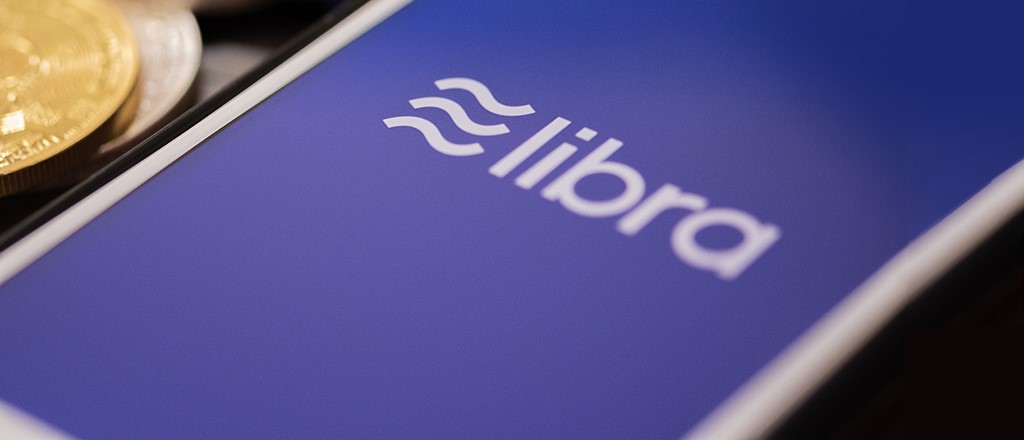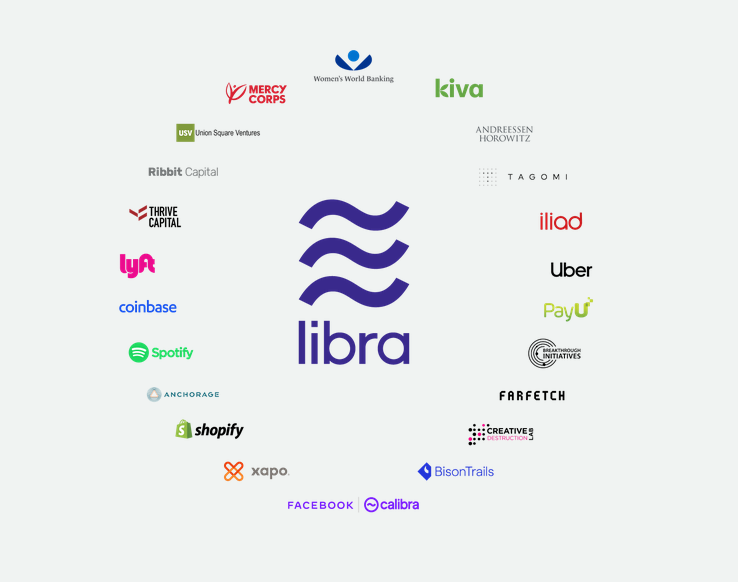
NICOLAS DUSSAUX – MARCH 18TH, 2020
EDITOR: PINJA VUORINEN
In 2019 Facebook announced the creation of a new cryptocurrency, called Libra. Even though Libra is usually referred to as “Facebook’s money”, the project is in fact carried by the Libra Association, a non-profit headquartered in Geneva and San Francisco. The goal of the Libra Association is simple: to create a currency with two billion users that would not have to deal with frontiers, regulations or speculations. Their aim is to foster financial inclusion by challenging the dominance of Wall Street brokers and central banks in the financial system. Nevertheless, Libra has been received with a lot of defiance from the public. This article will examine some of the reasons why the Libra project would not be able to meet its own expectations and why the goals of the Libra Association are problematic from a practical standpoint.
Like every other cryptocurrency, Libra uses blockchain technology. This technology consists of registering transactions on the network in blocks that are successively added to a chain, which accounts for all transactions on the network. Several transactions are stored in each block. This technology relies on a distributed ledger, which means that instead of being overseen by a central authority, transactions are validated by a network of computers, called nodes. These nodes verify that the information contained in the block – the container of the transaction – is true, then add the transaction to the database. Each block is assigned a single number, called a hash, which allows for inviolability. For instance, if a hacker wanted to hack the blockchain by modifying the information in a block, he could not do it without creating a new block, with a new hash, which would make the hack very visible and easy to stop. Due to this, the system is very transparent and almost inviolable. But how would the system react if a node was deficient or was sending wrong information? The Libra developers came up with a solution called the Libra Byzantine Fault Tolerant consensus (LibraBFT consensus). The Byzantine Fault Tolerant consensus is a common process in the blockchain that consists of defining a common behavior for all nodes in reaction to a deficiency or hostile manipulation. In the case of the LibraBFT consensus, the system would allow up to one third of deficient nodes to validate a transaction, which would make it both secured and efficient. However, only the Libra partners would be allowed to add blocks to the ledger, which would speed up the transactions and make it a more eco-friendly alternative to Bitcoin. The Libra Association plans to move to a decentralized system once the scalability problems are settled, but it does not seem attainable anytime soon.
The biggest difference between the cryptocurrencies that are currently being exchanged and the Libra project is volatility. Bitcoin, Ethereum and XRP are the most traded cryptocurrencies and their value regularly surges and slumps. Since the Libra Association wants Libra to be a stable currency that would not lose its function as a wealth reserve or means of exchange, currency stability is their number one goal. However, pegging Libra to the dollar, operating through a mechanism known as a currency board, would be very expensive and very difficult since a currency board consists of repurchasing the currency being pegged to the dollar with dollars in order to maintain its value. It has failed several times in the past when used in countries with limited resources, such as Argentina in the early 2000s. Therefore, instead of guaranteeing no fluctuations, the Libra Association created the Libra Reserve. The reserve will acquire as many stable assets as customers purchase Libra. Simply put, this means that purchasing one Libra with one dollar will allow the Libra Reserve to purchase one dollar worth of stable assets, such as safe government securities, mortgage backed securities, and other financial products with a competitive credit rating. For now, the Libra Association plans to use dollars, euros, japanese yen, british pounds and Singapore dollars, which all are stable and reliable currencies.
Nevertheless , Libra has encountered a hostile reaction from lawmakers and the current actors of the economic system. The U.S. Congress audited several leaders of Facebook and Calibra – the Facebook subsidiary in charge of issuing the Libra – and some government officials openly showed their distrust of Facebook to administer the project in an efficient and lawful manner. The project takes place in a context of increased suspicion from the public towards Facebook after several scandals regarding data privacy that showed the unpreparedness of Facebook to counter the misuse of its network. There is indeed a huge difference between the goals of the Libra Association and the way they prepared lawmakers for the introduction of the currency. While the non-profit presents the project as a simple means of payment, David Marcus, the head of the Blockchain research at Facebook recently stated that “[Libra] could profoundly change the world” by fostering more financial inclusion. PayPal, eBay, MasterCard and Visa pulled out of the project in the end of 2019, saying they would not do anything that would decrease their trustworthiness in the eyes of regulatory officials. These episodes were seen by the public as clear setbacks for Facebook and the Libra Association. Nevertheless, the Libra Association still has about thirty members. It must not be forgotten that the economic and technologic might of Facebook allows them to use their two billion users as leverage in a very efficient manner. Moreover, the partners of the association would allow for a very rapid scalability of the Libra by allowing the customers to pay in their applications directly in Libras. This would allow it to overcome the problem most cryptocurrencies face: they are not easily used and accepted.

If the Libra Association is successful in creating Libra, it would create huge challenges for regulatory entities. The first partner of the Libra Association is Calibra, a Facebook subsidiary that would issue Libras. Facebook officials have indicated that if Libra was used extensively, Calibra would propose services such as loans and financial products. The implications are huge: Calibra’s products would lead to the creation of an entire shadow financial system. This would pave the way to the development of a parallel ecosystem around Libra, an ecosystem in which the regulatory entity would no longer be the Federal Reserve nor the government but the Libra Association. The lack of conceivable regulation of this new system could possibly increase money laundering and unlawful transactions in the short term. In this case, an efficient solution would be to reconcile the two systems by providing a new common regulatory framework. Not only would it be a huge project but it would also be antithetical to the goal of the Libra Association, which was to get rid of heavy regulations. Moreover, the Libra Association has disclosed very little information about its governance. As the public suspected Facebook to be hiding itself behind the Libra Association, Mark Zuckerberg tried giving some guarantees to the public. Facebook central governance distanced itself from its subsidiary, Calibra, and wrote in the status of the company very clearly that it would be impossible for Facebook to use the financial information collected by Calibra on its customers in any manner. Nevertheless, we still know very little about who leads the Libra Association and as such it is currently impossible for the public to assess the Association’s trustworthiness. In addition, despite claiming it would not do it, the Libra Association is going to perform monetary policy, a very technical duty that even highly skilled government officials barely master. This would tie very closely the monetary policy of the Fed and the one performed by the Libra Association.
The biggest threat posed by Libra is to economic and monetary sovereignty. Although in the distant future competition between the euro or dollar and Libra could exist, it is the countries of the global South that would pay the price of this innovation first. Facilitating the exchange and storage of a currency over borders would not only put platforms like Western Union out of business but would also cause a lot of problems to the central banks of developing countries. For instance, a currency like Libra would be too competitive compared to the Venezuelan bolivar and as such undermine the economic sovereignty of Venezuela. It is not difficult to imagine that if Libra becomes fully integrated into the international financial system that companies would choose to operate with Libra in unstable countries to secure their activities and reduce uncertainty. This would create a vicious spiral: paying wages directly in Libras would allow workers to store them more safely in their Libra accounts than in Venezuelan banks where the value of the deposit shrinks daily. Therefore, this is probably the most ambitious attempt in history by a private entity to compete with the state on one of its regalian duties.
It is widely believed that privately-issued money is a libertarian idea. Libertarians argue that the coercive power of the state must be used only if it is absolutely necessary. Therefore, it must reduce as much as possible its intervention in the economic system even by letting money be controlled by private agents. This idea stems from Friedrich Hayek’s book “Denationalization of Money,” written in 1976. Hayek suggests that confiding the creation and the regulation of money to private entities that would compete with each other would increase the efficiency of the system. However, the economist David Howard has pointed out that considering the dynamics in the market, a currency will inevitably end up dominating the market and instigate a monopoly, which then would harm the consumer either way. In our case, the Libra Association starts with a huge comparative advantage: the Facebook network has two billion users and its partners represent the bulk of the new economy (Lyft, Uber, Spotify, Shopify, Iliad, etc). Although at first the idea might seem like it could increase private initiative and reduce the influence of the state, it would ultimately reverse the hierarchy without making consumers any freer. Libra is about replacing the government entities by the partners of the Libra Association which does not settle in any way the trust problem, even if this centralization is temporary. The question then stands: are we willing to give up the command of the economic system to a private entity?
Featured Image Source: Knowledge at Wharton
Disclaimer: The views published in this journal are those of the individual authors or speakers and do not necessarily reflect the position or policy of Berkeley Economic Review staff, the Undergraduate Economics Association, the UC Berkeley Economics Department and faculty, or the University of California, Berkeley in general.



